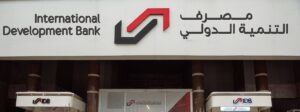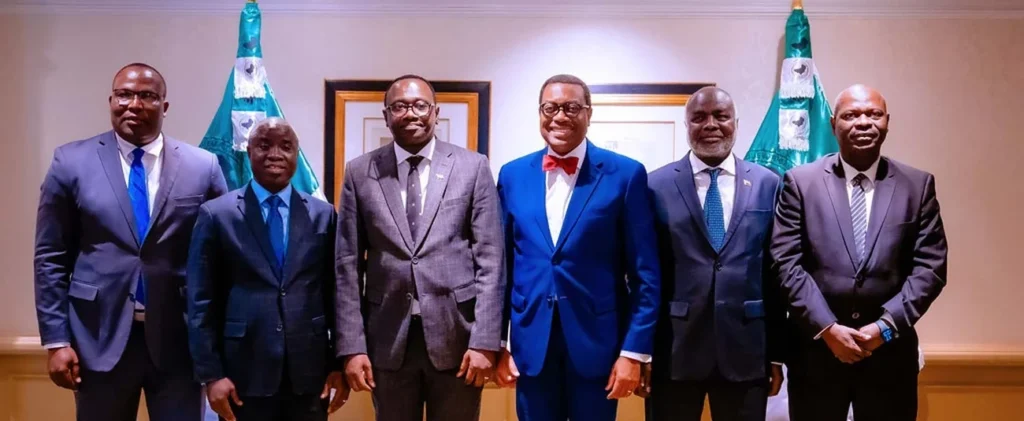- Sudan has stepped forward, increasing its pledge to $3 million in the African Development Fund.
- Sudan’s pledge aligns it with other African nations, which have each committed to raise at least $1 million to the fund by 2025.
- With backing from The Gambia, Liberia, Sierra Leone, and Ghana, Africa’s commitment to funding its key projects is strengthening.
African nations are coming together to secure a $25 billion replenishment for the African Development Fund (ADF), an ambitious target that signals a continent-wide push toward self-driven financing for projects.
In the latest update, Sudan has stepped forward, increasing its pledge to $3 million in this collective movement. With backing from countries including The Gambia, Liberia, Sierra Leone, and Ghana, Africa’s commitment to funding its development projects is strengthening.
As governments, led by the African Development Bank (AfDB), advocate for this replenishment, they set a critical precedent for financial autonomy in achieving Africa’s long-term development goals.
Sudan steps up amid financial struggles
Sudan’s decision to increase its contribution to $3 million, as announced by the Minister for Finance and Economic Planning, Dr. Gebreil Ibrahim Mohamed Fediel, highlights Khartoum’s commitment to supporting the continent’s collective progress, amid the country’s ongoing economic challenges.
The announcement was made during a meeting with high-ranking officials, including AfDB President Dr. Akinwumi Adesina, on the sidelines of the World Bank and IMF annual meetings in Washington, D.C.
Dr. Adesina lauded Sudan’s move, describing it as an “incredible show of solidarity” and an example of dedication to Africa’s development. Sudan’s action aligns it with several other African nations, which have each pledged to contribute at least $1 million to the fund by 2025.
Despite Sudan’s own economic instability, this contribution reflects a shared recognition of the transformative power of the ADF in addressing some of the continent’s most pressing needs.
African Development Fund: An engine for regional progress
Established as the concessional financing arm of the AfDB, the African Development Fund has become instrumental in building regional transport infrastructure, power connectivity, and other large-scale projects.
Currently operating under its largest-ever financing cycle of $8.9 billion, set to conclude in 2025, the ADF has a proven track record of facilitating critical investments in the continent’s 37 least-developed countries.
The demand for its services is on the rise, with beneficiaries stressing the need for concessional resources to ensure sustainable growth.
AfDB’s Dr. Adesina has been vocal about expanding the fund’s capacity, underscoring a long-term vision to not only increase ADF resources but also allow the fund to tap into capital markets.
This shift, Dr. Adesina claims, could unlock an additional $27 billion for the ADF’s next replenishment cycle, making a significant difference in financing Africa’s large-scale development needs.
A unified call for a bold $25 billion goal
The push for a $25 billion target, led by the AfDB, represents a unified call for Africa to take charge of its development trajectory. Governments from Kenya to Benin have joined the effort, with notable pledges including Kenya’s $20 million commitment announced by President William Ruto.
Each contribution reflects Africa’s resolve to finance projects that serve local populations while reducing reliance on external funds.
For example, Benin recently pledged $2 million toward the upcoming ADF replenishment, following a broader trend of African nations stepping up to invest in their future.
This bold funding target aligns with the continent’s broader goals, including advancing education, expanding healthcare access, and addressing energy poverty through local solutions.
AfDB Executive Director Rufus Darkortey recently applauded these efforts, highlighting that the drive for a larger ADF underscores Africa’s determination to lead its transformation from within.
Capital markets: A new frontier for ADF
For the AfDB, expanding the ADF’s funding capacity is a priority. Historically, the ADF has relied on donations from member countries, limiting its capacity to finance Africa’s massive infrastructure and development needs.
However, the proposal to allow the ADF to access capital markets has sparked discussions on how to make this financing model sustainable. If successful, the ADF could triple its resources, generating sizeable funding for the continent’s development priorities.
Dr. Adesina has championed this shift, arguing that it could turn the ADF into a self-sustaining engine of African growth. By leveraging capital markets, the ADF would be positioned to offer larger, more impactful financial solutions to Africa’s most vulnerable countries, expanding its influence in critical sectors such as renewable energy, technology, and transportation.
Read also: Shocking Details of Kenya’s $168 billion Plundered Development Loans Revealed
Mobilizing local support for African-led growth
The move to replenish the ADF with African contributions signals a shift in perspective. Traditionally, African development has been supported primarily by international donors. Now, with countries such as Sudan, Kenya, and Ghana leading the way, there is growing momentum for Africa to take ownership of its development initiatives.
This shift toward self-reliance is not just symbolic. By investing their own resources, African nations can align the fund’s priorities more closely with local needs, ensuring projects have a greater impact on communities.
A fully funded ADF has the potential to drive progress in underserved regions, creating jobs, improving infrastructure, and reducing poverty. African leaders see this as a moment to redefine their role in the global economy, positioning the continent as a source of innovative development financing rather than a passive recipient.
As Africa pushes for a $25 billion ADF replenishment, the continent’s leaders are setting a course for long-term development and self-sufficiency. If successful, this funding would catalyze projects across sectors, from energy to technology, reshaping Africa’s economic landscape and creating a foundation for lasting prosperity.




